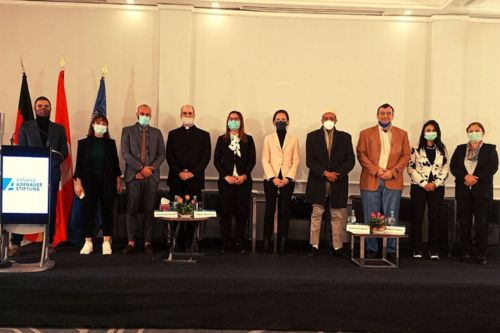The political, economic, social, and security situation at the national level, combined with the repercussions of the geopolitical landscape and the rise of right-wing movements globally, especially considering the security situation in the Middle East, has made Tunisia particularly susceptible to the rise of far-right ideologies rooted in populism. This populism manifests in two forms: protest populism, which opposes elites and idealizes the people by calling for a « hyper-democracy, » and identity populism, which is nationalist, anti-immigration, and xenophobic, focusing on the nation.
In both cases, times of crisis provide fertile ground for extreme ideologies to gain traction. Whether the crisis is economic, migratory, or social, it allows for the blaming of the government, foreigners, or elites. The scapegoat principle is highly effective and appealing to the populace, as those who use these arguments position themselves as allies of the people; this is the essence of populism, widely exploited by both far-right and far-left groups. This phenomenon is evident in contemporary Tunisia, highlighting the crucial role that religious institutions and their leaders must play in addressing these challenges.
To counter this trend, it is imperative to offer modern alternatives in religious discourse, focusing on human-centric values and being wary of the false notions of organic unity among nations, races, or communities based on belief in immutable (supernatural) laws. These efforts are grounded in the respect for « religious freedoms. »
As declared by the Second Vatican Council, « This freedom means that all men are to be immune from coercion on the part of individuals or of social groups and of any human power, in such wise that in matters religious no one is to be forced to act in a manner contrary to his own beliefs. Nor is anyone to be restrained from acting in accordance with his own beliefs, whether privately or publicly, whether alone or in association with others, within due limits. This right of the human person to religious freedom is to be recognized in the constitutional law whereby society is governed and thus it is to become a civil right. » (DIGNITATIS HUMANAE, Chapter 1: 2).
In this context, the Attalaki, in partnership with the Konrad Adenauer Foundation, organized in 23 March 2021, a national conference attended by Mr. Abdel Karim Farah, Advisor to the Minister of Religious Affairs, and Ms. Massouda Btikh, General Director at the Ministry, representing the Minister of Religious Affairs, Ahmed Adhoum. The conference also saw the presence of Madame Cantier Artisitde, President of the Office of the High Commissioner for Human Rights at the United Nations in Tunis; Rabbi Daniel Cohen, head of the Jewish community in La Goulette; Father Silvio Moreno, Representative of the Diocese of Tunis; the President of the Reformed Church in Tunisia; as well as professors in law, sociology, and comparative religion, along with a large group of students.
Religious sentiment and individual and collective beliefs can be expressed and nurtured where human rights are protected. Conversely, human rights can benefit from the deeply rooted ethical and spiritual foundations found in religions and beliefs. Ms. Elodie Cantier-Aristide – Representative and Head of the OHCHR office in Tunis



